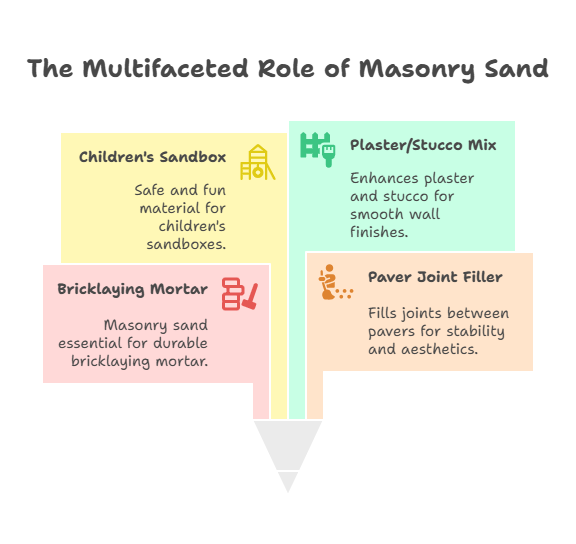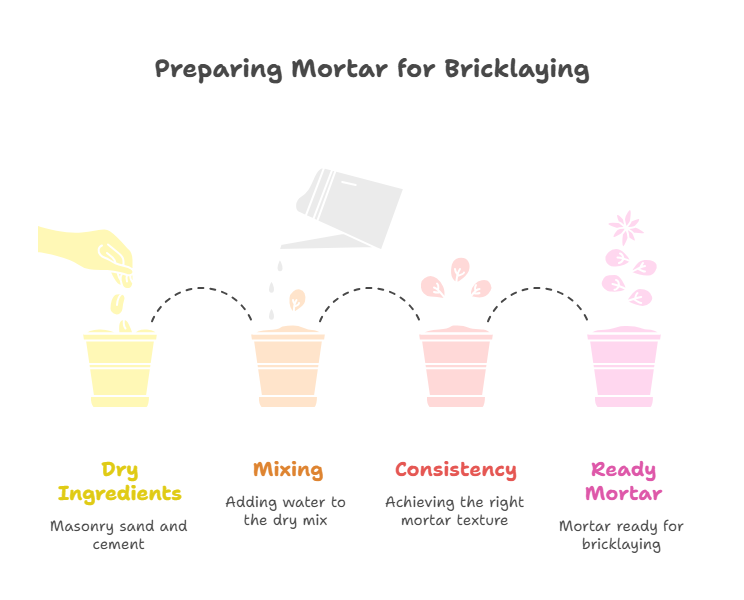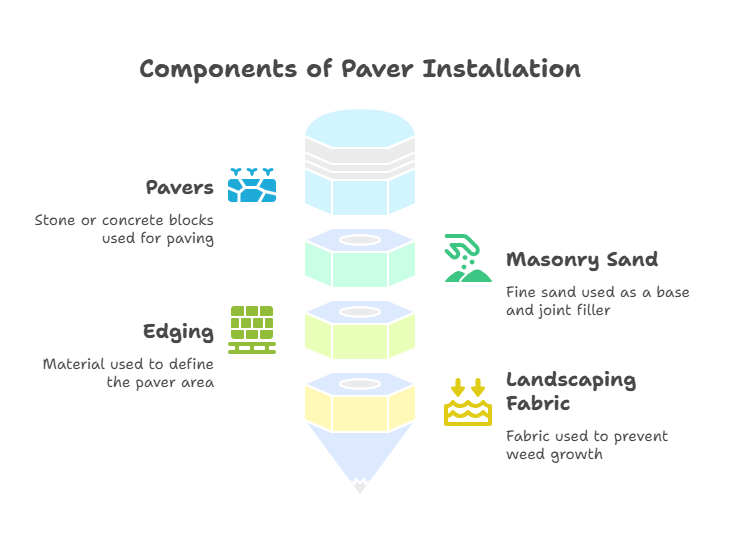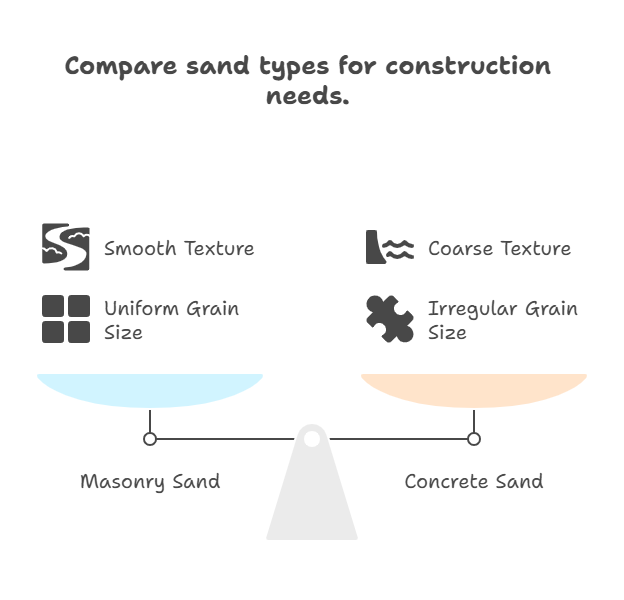Masonry sand is a key ingredient for builders, contractors, and DIY enthusiasts aiming to create strong, attractive, and lasting masonry work. Its fine, uniform grains are perfect for mixing mortar, laying bricks, plastering, and paving. Understanding the properties and uses of masonry sand helps you choose the right material for your project and achieve professional results every time.
What Is Masonry Sand and Why It’s Important
Masonry sand is finely crushed and washed sand made from natural rocks like granite, limestone, or quartz. Its grains are small and smooth compared to other sands, making it ideal for mortar and plaster mixes. Masonry sand is free from clay and debris, which ensures better bonding and longer-lasting structures. With the right sand, mortar holds bricks and stones firmly and results in clean, even joints without cracks.

Choosing masonry sand is about more than texture. Its quality directly impacts the strength and finish of your project. Using coarse or dirty sand can cause weak mortar and poor appearance.
Differences Between Masonry Sand and Concrete Sand
Masonry sand has finer grains and smoother texture, ideal for detailed brickwork, stucco, and plaster. Concrete sand is coarser and better suited for structural concrete, foundations, and driveways. The grain size affects how the sand binds with cement and how the finished surface looks. Using concrete sand in mortar can lead to rough finishes and bond failures, while masonry sand in heavy concrete might weaken the structure. Knowing the difference helps you pick the right sand for the specific job.
Read More = River Rock Landscaping Ideas: Transform Your Yard with Natural Stone
Main Uses for Masonry Sand
- Mortar Mix: The basis for strong mortar used in laying bricks, blocks, and stones.
- Paver Installation: Provides stable base and fills gaps between pavers to prevent movement and weed growth.
- Stucco and Plaster: Creates fine finishes that improve durability and aesthetics of walls.
- Play Areas: Safe, soft, and clean sand for sandboxes and volleyball courts.
- Landscaping: Perfect for filling and leveling surfaces like patios, pathways, and garden features.

How to Choose the Best Masonry Sand
Look for sand that is washed and screened to remove silt, clay, and large particles. It should meet masonry quality standards like ASTM C144, ensuring proper grain size and cleanliness. Color can vary but lighter shades, such as white or light gray, are preferred for visible surfaces. Always buy from a trusted supplier who can confirm the sand’s origin and quality.
Expert Tips for Working with Masonry Sand
- Mix masonry sand with cement and water in the right proportions to get a workable mortar.
- Avoid sand with clay or dust, which reduces bonding strength.
- For pavers, compact the base layer thoroughly and spread sand evenly between joints.
- Store sand in a dry place to maintain quality and prevent clumping.
What Makes Masonry Sand Essential for Your Project
Masonry sand’s fine texture ensures smooth mortar that binds well and creates clean edges. It contributes to the strength and durability needed for walls, patios, and other structures. Its versatility lets you use it in various applications, from construction to landscaping, making it one of the most useful sand types available.
Read More = Best Gravel for Driveway: How to Choose and Install Durable Stone for Your Driveway
FAQs About Masonry Sand
What is the main difference between masonry sand and concrete sand?
Masonry sand has smaller, smoother grains ideal for mortar and finishing work, while concrete sand is coarser and better for structural concrete projects.

Is masonry sand safe to use in children’s play areas?
Yes, it is soft, clean, and free of harmful materials, making it suitable for sandboxes and recreational courts.
Can I use masonry sand for outdoor paving projects?
Absolutely, it provides a stable base and fills joints effectively, reducing shifting and weed problems.
What standards should masonry sand meet?
It should comply with ASTM C144, which ensures the sand is clean, well-graded, and suitable for masonry.
How should I store masonry sand to keep it in good condition?
Keep it dry, covered, and off the ground to avoid moisture and contamination.

Leave a Reply